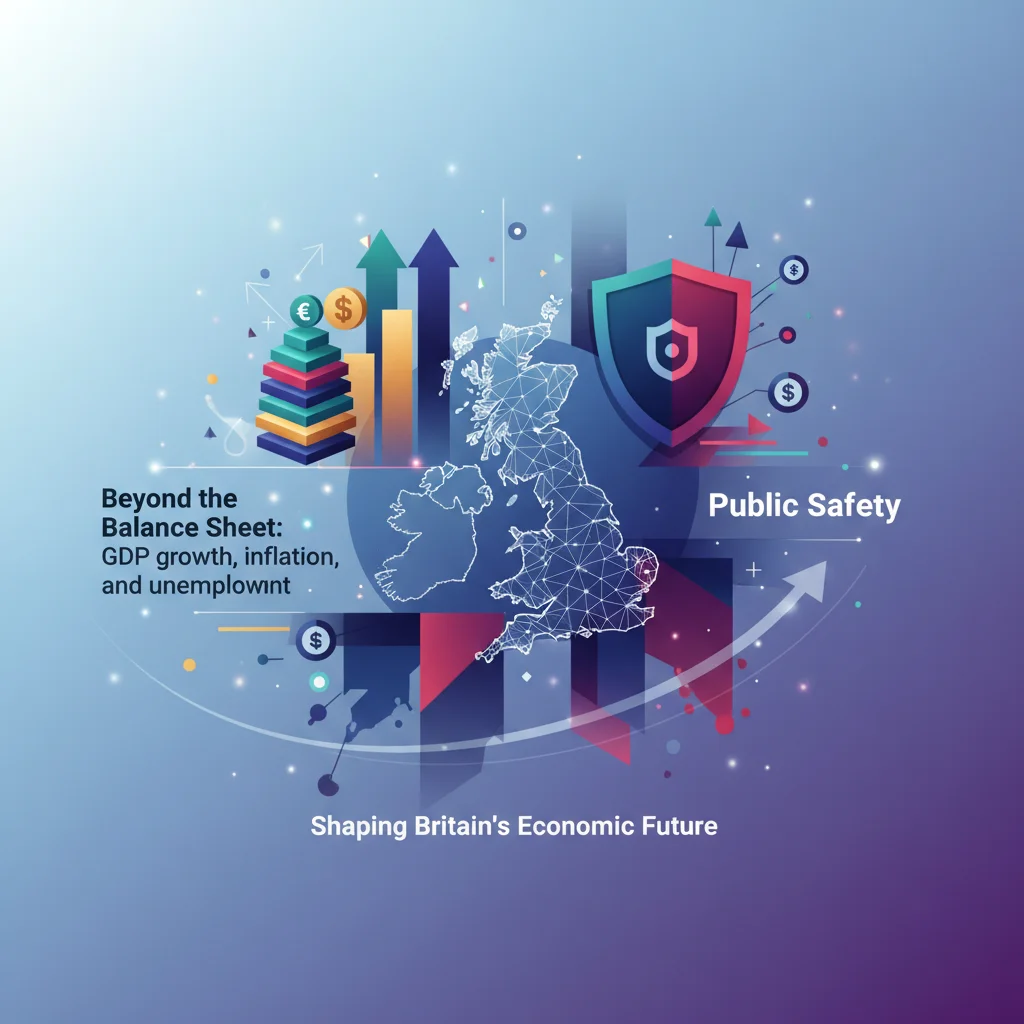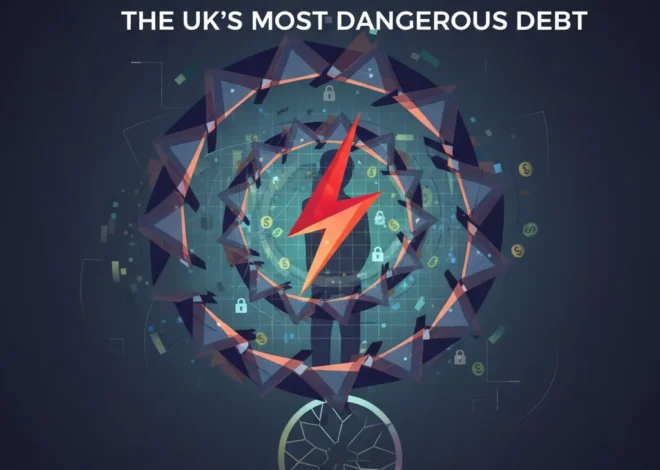
Beyond the Balance Sheet: How Public Safety is Shaping Britain’s Economic Future
For decades, the golden rule of British politics has been deceptively simple: “It’s the economy, stupid.” General elections have been won and lost on the battlegrounds of GDP growth, inflation, and unemployment. Investors and business leaders have traditionally focused their analysis on fiscal statements and Bank of England forecasts. Yet, a subtle but powerful shift is underway. A rising tide of public disquiet over crime and a perceived decline in safety is becoming a formidable undercurrent, one that threatens to reshape not only the political landscape but the very foundations of the UK’s economic stability.
The next election may be fought on a dual front, where the public’s sense of personal security carries as much weight as their financial security. As a recent analysis in the Financial Times highlights, ignoring this growing national anxiety would be a perilous mistake for any political party. But for those in finance, investing, and business, it’s more than a political curiosity; it’s a new and critical variable in the UK’s risk profile. Understanding the deep connection between crime, public sentiment, and economic performance is now essential for navigating the complexities of the modern British economy.
The Tangible Ledger: Quantifying the Economic Cost of Crime
While the emotional and social toll of crime is immeasurable, its economic impact can be tracked on a balance sheet, and the numbers are staggering. This isn’t just about the cost of stolen goods; it’s a systemic drain on national productivity and prosperity that affects everything from corporate earnings to public finance.
The most visible impact is on the retail sector. Shoplifting has evolved from petty theft into a significant operational threat. The British Retail Consortium reported that customer theft more than doubled in 2023 to 16.7 million incidents, costing businesses £1.8 billion. This isn’t just a loss of inventory; it forces businesses to invest heavily in security measures, CCTV, and staff training—capital that could otherwise be used for expansion, innovation, or hiring. These costs are inevitably passed on to consumers through higher prices, fueling inflation, or absorbed through lower profit margins, impacting stock market valuations for publicly traded retailers.
Beyond the high street, the strain on public finances is immense. The entire criminal justice system—from policing to courts to prisons—represents a significant portion of government expenditure. When crime rates rise, so does the pressure on these services, demanding greater budget allocations. This creates a difficult fiscal choice: raise taxes, increase government borrowing (impacting the bond market), or reallocate funds from other critical areas of the economy like infrastructure, education, or healthcare. Each of these choices has profound long-term consequences for the UK’s economic competitiveness and growth potential.
Behind Closed Doors: Why the NY Fed's "Impromptu" Meeting with Wall Street Is a Warning Sign
Furthermore, the conversation must expand to include financial crime, a domain where banking and fintech are on the front lines. Fraud, money laundering, and cybercrime inflict billions in direct losses and necessitate massive, ongoing investment in compliance and security. The evolution of financial technology has been a double-edged sword; while it offers sophisticated tools for fraud detection and prevention, it also opens new vectors for attack. The integrity of the financial system is a cornerstone of a modern economy, and the fight against financial crime is a perpetual drag on efficiency and a significant operational risk for the entire banking sector.
To put this into perspective, let’s examine the scale of the issue across different crime categories.
| Crime Category | Recent Trend / Statistic | Primary Economic Impact |
|---|---|---|
| Retail Crime (Shoplifting) | Cost businesses £1.8bn in 2023, with incidents doubling (source) | Direct business losses, increased security overhead, inflationary pressure, reduced profitability. |
| Fraud & Cybercrime | Represents over 40% of all crime in England and Wales. | Losses for individuals and corporations, high compliance costs for the banking and fintech sectors, erosion of trust in digital commerce. |
| Vehicle & Property Theft | Persistently high rates strain police resources and impact communities. | Increased insurance premiums for all citizens and businesses, replacement costs, reduced property values in high-crime areas. |
| Anti-Social Behaviour | Public perception of it being a major problem has risen significantly. | Deters footfall in town centres, impacts hospitality and leisure sectors, requires costly local council and police intervention. |
The Ripple Effect: How Sentiment Undermines the Broader Economy
The direct costs of crime are only one part of the story. The indirect, second-order effects are arguably more damaging to the long-term health of the economy, as they erode the trust and confidence that are the bedrock of a prosperous society.
At the highest level, this concerns **investor confidence and Foreign Direct Investment (FDI)**. Capital is famously cowardly; it flows to environments of stability, predictability, and the rule of law. A nation perceived to be struggling with law and order sends a powerful negative signal to international investors. It suggests underlying social fractures and a government that may be losing its grip on domestic affairs. This can make foreign companies hesitant to commit long-term capital, impacting job creation and technological advancement. A stable society is a prerequisite for a stable investment climate.
The **stock market** is not immune to these sentiments. While the market as a whole may not react to daily crime statistics, specific sectors are highly vulnerable. As mentioned, retail and hospitality stocks can suffer from the direct impact on their operations. The insurance sector faces increased claims and pricing volatility. Conversely, private security firms and companies specializing in cybersecurity and financial technology for fraud prevention may see their valuations rise. This creates pockets of volatility and requires investors and trading professionals to adopt a more nuanced, socially-aware approach to their sector analysis.
Political Cracks, Economic Quakes: Why Infighting on the Far-Right Matters to Your Portfolio
This phenomenon can be viewed as the “Broken Windows” theory applied to an entire national economy. The theory posits that visible signs of crime and anti-social behaviour create an environment that encourages more serious crime. Economically, when the public sees that crimes like shoplifting go unpunished and police response is inadequate—with less than 6% of all crimes resulting in a charge—it erodes trust in state institutions. This erosion of trust is catastrophic for a market economy, which relies on faith in contracts, property rights, and regulatory bodies. It’s a slow-acting poison that undermines the very fabric of commerce.
In this context, innovative technologies are often touted as solutions. While not a panacea, the principles behind technologies like **blockchain** offer intriguing possibilities. Its immutable ledger system could be used to create highly secure supply chains, drastically reducing theft in transit. In the realm of **fintech**, blockchain-based digital identities could help combat the rampant fraud that plagues the current **banking** system. These applications of **financial technology** demonstrate a proactive approach to mitigating some of the economic symptoms of crime.
The Political Crossroads and Its Economic Consequences
As the UK heads towards a general election, the political parties face a monumental challenge. The public’s demand for safety will force them to make difficult policy and fiscal commitments. The two primary paths are both fraught with economic peril.
One option is a massive investment in the criminal justice system: more police officers, more court capacity, and more prison places. This is a direct, and very expensive, hit to the national budget. It would likely necessitate higher taxes on individuals and corporations or deeper cuts to other public services, both of which could stifle economic growth. The economics of this approach are clear: it’s a significant increase in non-productive government spending.
The alternative is to focus on the root causes of crime—poverty, lack of opportunity, mental health issues, and addiction. While many argue this is the more effective long-term strategy, it requires sustained, multi-decade investment in social programs, education, and healthcare. The economic returns are slow to materialize, and the upfront cost is still substantial, presenting a difficult proposition for any government facing a short-term election cycle.
Trump's Billion Lawsuit Threat Against BBC: A New Frontier of Financial Risk for Global Media?
For investors and business leaders, the choice the next government makes will have direct implications. A focus on enforcement could impact fiscal policy and taxation, while a focus on social investment could change the landscape for healthcare and education sectors. The key takeaway is that the rising importance of crime in politics will force economic trade-offs that will define the UK’s trajectory for years to come.
Conclusion: A New Paradigm for Risk Assessment
The conversation about the UK economy must expand. It is no longer sufficient to analyze fiscal policy and monetary decisions in a vacuum. The social fabric of the nation, and specifically the public’s perception of its own safety, has become a leading economic indicator.
The rising fear of crime acts as a hidden tax on businesses, a drain on public resources, and a deterrent to investment. It corrodes the trust that underpins a dynamic market economy and introduces a new layer of risk that cannot be ignored. As Britain navigates its post-Brexit, post-pandemic future, its ability to ensure the safety and security of its citizens will be as crucial to its prosperity as any trade deal or industrial strategy. For anyone with a stake in the UK’s financial future, from the individual investor to the multinational CEO, the message is clear: watch the crime rate as closely as you watch the interest rate.


